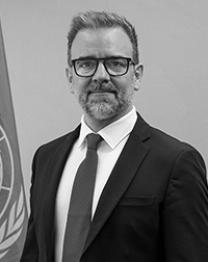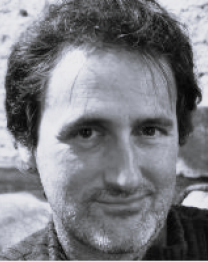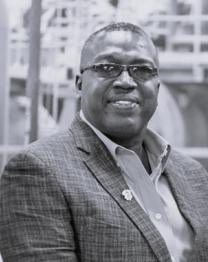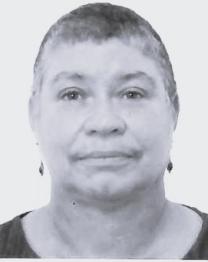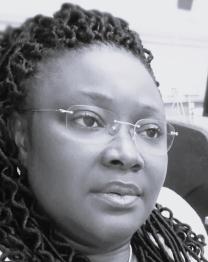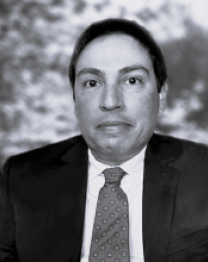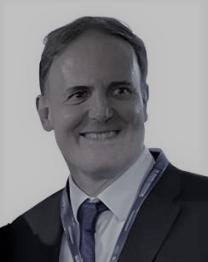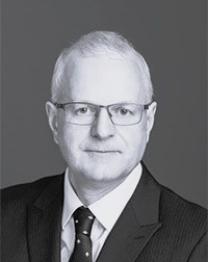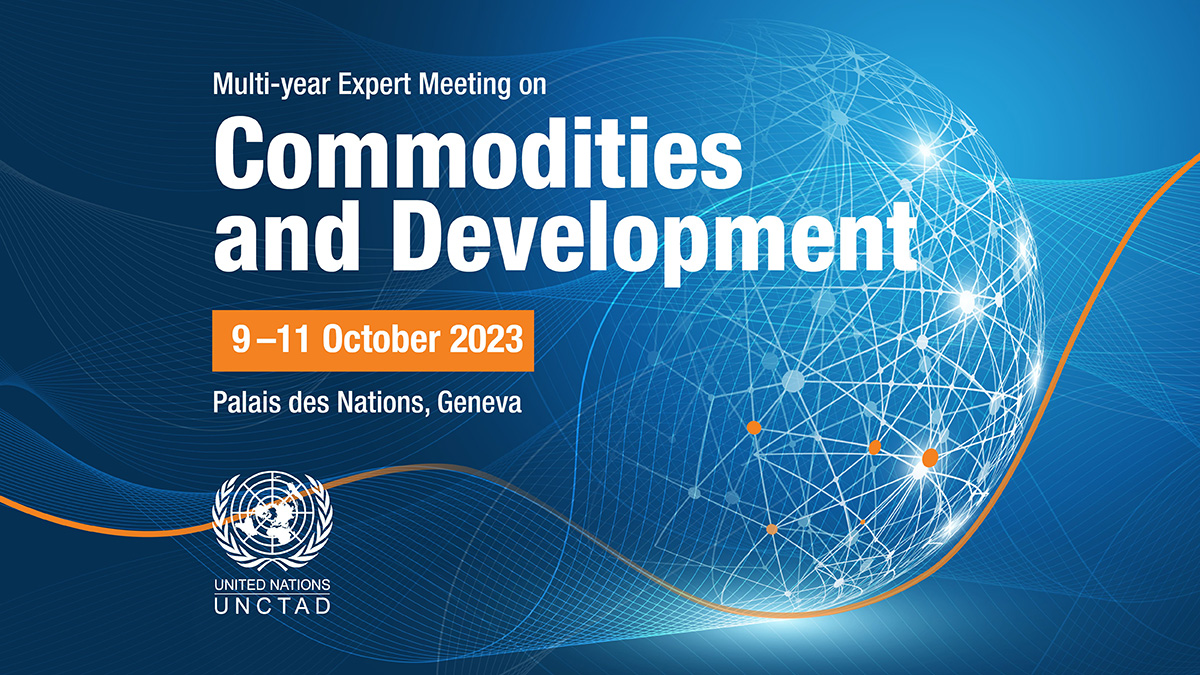
The fourteenth session of the Multi-year Expert Meeting on Commodities and Development will be held with physical participation from 9 to 11 October 2023 in Room XXVI of the Palais des Nations. It will start at 10 a.m. on Monday, 9 October.
Background, structure, and purpose of the meeting
The Accra Accord, in paragraph 208, gave a mandate to the Trade and Development Board of UNCTAD to establish a multi-year expert meeting on commodities. The mandate was reaffirmed in paragraph 17 of the Doha Mandate, which extended it to 2016, and in paragraph 100 (s) of the Nairobi Maafikiano, which extended it to 2020. The mandate has been further extended in line with paragraphs 123 and 127 (m) and (kk) of the Bridgetown Covenant.
The expert meeting will consist of six sessions over three days:
- Day 1 provides a general overview of commodity market trends and prospects.
- Day 2 will explore risk management strategies and policies implemented at national, regional, and international levels to effectively manage commodity price volatility in commodity-dependent developing countries (CDDCs).
- Day 3 of the meeting will focus on the presentation of two recent publications of the Commodities Branch namely a publication on access to energy in sub-Saharan Africa and the UNCTAD Commodities and Development Report 2023.
This fourteenth session of the expert meeting is a neutral platform for sharing country experiences in terms of successful strategies and policies implemented at national, regional, and international levels to effectively manage commodity price volatility. More precisely, the expert meeting will assess the links between commodity price volatility and key macroeconomic indicators in Commodity Dependent and Developing Countries (CDDCs), and the links between commodity price volatility and food security in net-food-importing countries. The meeting will also discuss market and technology-based instruments that can help manage price risks.
In this context, experts will identify and review successful examples of managing risks associated with commodity price volatility in developing countries and draw lessons from these examples. Participants are expected to assess existing challenges in CDDCs concerning access risk management tools, and identify ways to address these challenges. Finally, experts will identify policies both at domestic and international levels to reduce the impact of price volatility on commodity-dependent economies and vulnerable groups and thus safeguard the achievement of the sustainable development goals (SDGs) from risks related to commodity price volatility.
The main expected output of the meeting is the report of the meeting where successful risk management strategies and policies implemented at national, regional, and international levels will be documented based on the recommendations made both by experts and other participants. Additional expected outputs may include collaborations on research projects to deepen various aspects of these successful strategies and policies.
Participation
This session is open to all member States of UNCTAD. Other organizations, including specialized agencies, intergovernmental bodies and non-governmental organizations in the general and special categories, as well as academia and the private sector, may participate as observers.
Experts will participate in the meeting in their personal capacities and are expected to have proven expertise in the subject matter. They may be selected from government ministries such as those dealing with trade, industry, agriculture, minerals and metals and oil and gas and may also be selected from the private sector, including representatives of producer associations or cooperatives, and non-governmental organizations.
The session will be held with physical participation in room XXVI of the Palais des Nations. Those who cannot attend the meeting in person will be able to listen to the live audio stream. However, remote interventions will not be possible. The link to listen live will be sent to registered participants, at the email address used for registration, one day in advance of the start of the meeting.
Mr. Pedro Manuel Moreno of Spain, is Deputy Secretary-General of UNCTAD.
He has over 20 years of experience of working for multilateral and intergovernmental organizations in programme, management and strategic positions both in the field and at headquarters.
He was Deputy Secretary-General of the Communication for Development Committee at the Spanish National Commission with the United Nations Educational, Scientific and Cultural Organization (1999-2004), and for the United Nations Development Programme, at the Country Office in Ecuador and, in New York City, as part of the Human Development Report team, at the Regional Bureau for Latin America and the Caribbean and at the Executive Office.
In 2014, he was appointed Chief of Staff of the Ibero-American Conference in Madrid, where he coordinated key political processes and South-South cooperation projects.
In September 2021, he was named Chief of Staff and Director of the Office of the Secretary-General of UNCTAD.
Guillaume Albasini is an independent consultant in the mining, metals and energy sectors. Previously, he was a research officer at the CRES Foundation in Geneva where he carried out various studies on the geopolitics of energy and raw materials and the challenges faced by producing countries. He is a graduate in political science from the University of Lausanne and holder of a Master in international relations from the Graduate Institute of International and Development Studies in Geneva. His most recent research focuses on the impact of the energy transition on demand for energy and mining commodities.
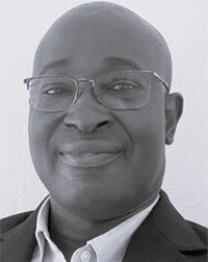
Rachid Amui is an Economic Affairs Officer in the Commodities Research and Analysis Section of the Commodities Branch, Division on International Trade and Commodities at UN Trade and Development (UNCTAD).
His research interests are in extractive industries and development, and commodity price risk management.
Prior to joining UNCTAD in 2003, Rachid worked extensively in the field of structures and foundation engineering.

Professor Dr. Kostas Andriosopoulos is the Executive Director of the Energy Transition & Sustainability Center at Audencia Business School, where he holds the position of full Professor in Finance and Energy Economics. Kostas holds a PhD in Finance (Cass Business School, City University London), where he has been the recipient of the prestigious Alexander S. Onassis Public Benefit Foundation’s scholarship. He holds an MBA and MSc in Finance (Northeastern University, Boston, USA), and a bachelor’s degree in Production Engineering and Management (Technical University of Crete, Greece). He holds leadership positions in various academic and professional associations, such as the Energy Committee of the American-Hellenic Chamber of Commerce (President), the Decarbonization Fund of the Greek islands for the Hellenic Ministry of Environment & Energy (President), the Hellenic Association for Energy Economics (Founder & BoD Member) and the Global Gas Center (Board Member). In addition to his academic roles, Kostas has extensive professional experience, including serving as Vice Chairman of the Board of Directors of the Hellenic Public Gas Company. Since August 2018, he is the Country Manager of Akuo Energy in Greece. Kostas has contributed significantly to his field, publishing in international finance and commodity-related journals, and participating as a speaker at conferences worldwide. He is the Associate Editor for the International Journal of Financial Engineering and Risk Management, Member of the Editorial Board of the Journal of Energy Markets.
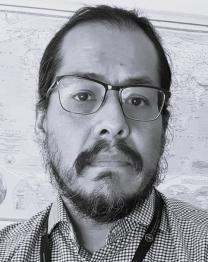
Mr. Sergio René Araujo-Enciso is an Economist at the Medium-Term Outlook and Market Analysis Team at the Food and Agriculture Organization of the United Nations (FAO). Mr. Araujo-Enciso contributes with market and policy analyses to various pieces of work and publications, including the OECD-FAO Agricultural Outlook. In addition, he also has sound experience in economic modelling. Before joining FAO, Mr. Araujo-Enciso was a research fellow at the European Commission Joint Research Centre (EU-JRC) based in Seville Spain, and a research assistant at the George August Gottingen University in Germany, where he gained his PhD degree.
Dr. Ben K. D. Asante is an Oil and Gas Engineer and the CEO of the Ghana National Gas Company (Ghana Gas) since 2017. Dr. Asante has more than 30 years global experience in the Oil and Gas industry. Dr. Asante is also a lecturer at the College of Engineering, Kwame Nkrumah University of Science and Technology (KNUST) and a former Operations and Technical Director of Ghana’s premier Gas Infrastructure Project which birthed Ghana Gas’ Atuabo Gas Processing Plant and allied gas infrastructure in the Western Region. Dr. Asante has provided Consulting, Engineering services, Project Management, and technical support for various projects throughout the world, as well as institutions including the World Bank and Asian Development Bank (ADB). Dr. Asante holds a BSc. in Chemical Engineering from KNUST, Ghana and an MSc. in Chemical Engineering from the University of Calgary, Canada. He also obtained a PhD in Chemical Engineering from the Imperial College, London University of Calgary, where he later taught Gas Processing and Pipeline Engineering.
Alexander Bressers is a Senior Oil Market Analyst at the International Energy Agency (IEA), where his primary focus is on global oil demand and prices. Before joining the IEA in 2022, he worked for fifteen years as a commodity portfolio manager and futures trader for a number of banks and investment funds, developing quantitative trading strategies in the energy and agricultural markets. He holds a Master’s degree in economics from the Erasmus University in Rotterdam.
Dr Thierry Bros is a Professor at SciencesPo Paris, a contributor to the Natural Gas World website. In his 30+ years long career, Thierry was Senior Policy Manager & Lead Analyst for an oil & gas organisation in Brussels, Senior European Gas and LNG Analyst in a bank, notably accredited as the best European gas analyst for five years, as well as Senior Financial Equity Analyst, dealing with gas stocks (from upstream to regulated). Previously, Thierry was in charge of Security of Supply at the French Ministry of Economy and Finance where he liberalised the French gas market and supervised the European Contingency Gas Plan. On the academic side, Thierry has been a Senior Research Fellow of The Oxford Institute for Energy Studies and, in his first book, published in 2012, he rightly forecasted that the surge in US oil and gas production was going to deeply alter the energy and geopolitical landscapes. Thierry holds a Master of chemical engineering from ESPCI ParisTech and a PhD from Ecole Centrale Paris.
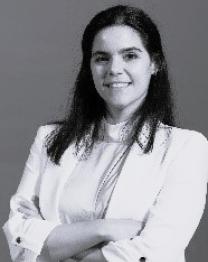
Christina Christopoulou is a Business and Technology Partner in the Gas Segment at Lloyd’s Register and has a well-rounded career that reflects her dedication in the maritime field. She graduated from the department of Naval Architecture and Marine Engineering of the National Technical University of Athens in 2018. Her professional career began with an internship at NAP Engineering P.C. in 2015, where she continued as a Naval Architect for five years. She contributed to various projects, including the EU-funded Poseidon Med II, where she played a key role in designing an innovative LNG-fueled Ro/Pax ship and many LNG retrofit projects for existing vessels of various ship types. Christina also participated in the design and supervision of new vessels constructions and modification of existing vessels. In January 2021, she joined Lloyd's Register as a Business and Technical Support Specialist in the EU funded projects team, and by March 2022, she had transitioned to the role of Business and Technology Partner within the Gas segment. Christina provides commercial and technical support to the Gas Segment manager and internal key stakeholders to develop and grow segment business. She is strongly involved in the “Methane Abatement in Maritime Innovation Initiative", being the leader of workstream 1.
Peter Clubb is a Market Analyst at the International Grains Council (IGC), an intergovernmental organisation that monitors the global situation of grains, rice, oilseeds and pulses. Peter’s primary focus is on assessing the world supply and demand of rice and rapeseed (canola), including production, consumption, stocks and trade, as well as monitoring other grains and oilseeds. Before joining the IGC in 2017, Peter was the Editor of the Live Rice Index, a specialist rice market publication and price reporting agency, and has accumulated more than a decade of experience in monitoring the global rice trade.
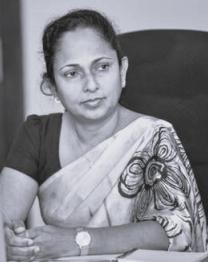
Gilma Dahanayake is an Additional Secretary of the Ministry of Trade, Commerce & Food Security in Sri Lanka and handle the internal trade matters. In addition, she has been functioning as the Acting Director General of Commerce in the Department of Commerce which is the trade policy formulating and implementing authority of the government of Sri Lanka. She headed to six divisions of the Department of Commerce such as Multilateral Affairs Division which is the focal point to the World Trade Organization, Bilateral Affairs Division, Regional Affairs Division, Trade Promotion Division, Rules of Origin Division and the Research and Training Division. She is a senior civil servant having 23+ years working experience and her career portfolio has been extended to Public Media, Health, Rural Economic and Internal Trade. She has been working in the Ministry of Trade since 2020. Currently she represents at the Boards Recently she headed the Sri Lanka Delegation to the Commonwealth Senior Official Meeting in London and then the Technical meetings of Australia-Sri Lanka Trade Facilitation Agreement. She is so enthusiastic in trade facilitation, regional cooperation and digitalization of the public services.
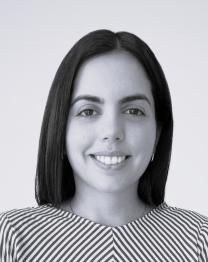
Sofia Dominguez is an Associate Economic Affairs Officer in the Division on International Trade and Commodities at UNCTAD. She specializes in economic research focused on development topics related to commodity dependence and commodity-dependent countries. Sofia has contributed to multiple publications covering a range of topics including diversification and inequality, value addition, and trade dynamics along critical mineral value chains. These publications shed light on pressing issues within the field. She holds an MSc in Economics from the University of Warwick.
Yolanda Drakapoulos is the Acting General Manager of the Jamaica Bauxite Institute. Yolanda has worked in the Jamaican bauxite industry for 25 years, in the exploration and management of the country’s bauxite reserves, and the allocation of bauxite reserves to the bauxite/alumina companies in keeping with Company/Government Agreements. Post-mining, she ensures that all mined-out bauxite lands are satisfactorily restored to a productive state.
Charlotte Eba is a Lecturer in Economics at the University of the West of Scotland. She is also an active member of the Centre for African Research on Enterprise and Economic Development (CAREED). Eba's primary research focus centers on International Trade, with a specific interest in market institutions and their impact. Her dedication has yielded notable accomplishments, including her co-authorship of a book chapter that delves into the intricate relationship between market institutions and their role in trade and economic development in Africa.
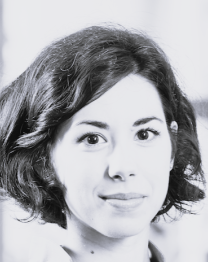
Ilaria Espa is Associate Professor of International Economic Law and Senior Research Fellow at the World Trade Institute (WTI) in Bern. She is furthermore Adjunct Professor at the Catholic University of the Sacred Heart in Milan and Lead Counsel of the 'Natural Resources' Programme of the Centre for International Sustainable Development Law (CISDL). Ilaria’s areas of expertise include international economic law, with a focus on trade regulation, international environmental law, and EU law. She has published extensively on issues at the intersection of trade and sustainability, mainly in the areas of climate change, energy and commodities, as well as on the law governing the sustainable management of natural resources, always from a multi-layered governance perspective.
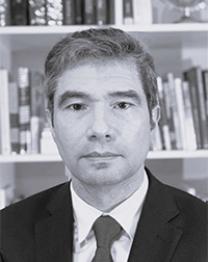
Clovis Freire Junior is Chief of Extractive Commodities Section, of the Division on International Trade and Commodities of UNCTAD in Geneva. He is an Economist specialized in economic diversification and strategies for building productive capacities in developing countries. His work supports the structural transformation and sustainable development of commodity-dependent developing countries.
He has over 20 years of work experience in the United Nations in programmes related to commodity dependence, least developed countries, technology and innovation for development, and disaster risk reduction. He holds a degree in Computer Engineering from the Technological Institute of Aeronautics (ITA), Brazil, a Master’s degree in Computer Sciences from the University de Brasília (UnB), an MBA in Strategic Management of Information Systems from the Fundação Getúlio Vargas (FGV), Brazil, and a PhD in Economics from the Maastricht University, in Maastricht, the Netherlands.
Bas Geerts is the Head of Sustainability at Cefetra Group. Initially educated in Marketing and Communications he broadened and deepened his knowledge with a study on Sustainability, combined with extensive international working experience at World Wide Fund for Nature (WWF). He has well over 2 decades of experience in leading multi-stakeholder initiatives, focused on implementing sustainability in several global supply chains (e.g. timber, palm oil, soy, cotton, cane sugar, wild and farmed seafood).
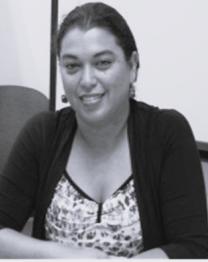
Georgina Hurtado works as Head of the Department of International Organizations for Basic Products of the Ministry of Development, Industry and Commerce (MIFIC) of Nicaragua. Her main function is to carry out economic analysis of the commercial behavior at the national and international level of basic products, mainly the coffee, cocoa and sugar items. Monitor and follow up on the resolutions and/or agreements made with International Commodity Organizations such as the OIC, OIA and ICCO according to their regulatory framework and those established by the Common Fund for Commodities for the financing of projects.
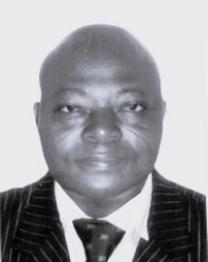
Mr. Bassolawoè Koka is Director of Local Products Processing at the General Directorate of Industry of the Ministry of Trade, Industry and Local Consumption, Togolese Republic. He is also Administrator of Finance and Banking, and National Coordinator of the Secretariat for the Enhanced Integrated Framework of Togo (EIF-Togo). Mr. Koka is full member of the steering committee of the extractive industries transparency initiative (CP-ITIE), representing the Ministry of Trade, Industry and Local Consumption. Mr. Bassolawoè Koka is Director of Local Products Processing at the General Directorate of Industry of the Ministry of Trade, Industry and Local Consumption, Togolese Republic. He is also Administrator of Finance and Banking, and National Coordinator of the Secretariat for the Enhanced Integrated Framework of Togo (EIF-Togo). Mr. Koka is full member of the steering committee of the extractive industries transparency initiative (CP-ITIE), representing the Ministry of Trade, Industry and Local Consumption.
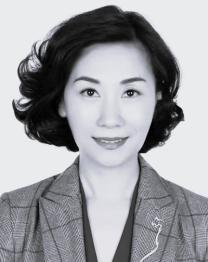
Li Lan, Director of External Relations and Partnerships of the International Bamboo and Rattan Organization (INBAR); Secretary General of China National Innovation Alliance of Bamboo and Rattan Sectors; Initiator, Founder and Secretary General of China Bamboo and Rattan Brand Cluster. She used to serve as Director of Industrial Development Department, Deputy Director of National Research Center of Bamboo and Rattan Engineering Technology, Deputy Director of Research and Education Division and Director of Training Division of the International Center for Bamboo and Rattan (ICBR) of the China National Forestry and Grassland Administration (NFGA). Graduated from the School of Economics & Management of Beijing Forestry University with a master’s degree, Li Lan is titled Senior Engineer. In her career, Li Lan has accumulated rich experiences in the development of bamboo and rattan industries, science and technology promotion and training, targeted poverty alleviation, research management and key laboratory construction. With the sponsorship of the Chinese Government, she had led more than 10 national foreign aid projects and over 80 domestic technical training covering 30 countries and 12 provinces in China, and set up a number of pilot sites in Southwest China. She is a winner of of “Liang Xi Forestry Science and Technology Award”, “National Outstanding Worker in Forestry Science and Technology”, “Outstanding Individual in Forestry Reform” and “National Award for Outstanding Contributions to Ecological Conservation”.

Dr Amir Lebdioui is a development economist, and Associate Professor in the Department of International Development at the University of Oxford. He was previously based at the SOAS and at the London School of Economics (LSE) where he led a research and policy engagement programme on the Future of Trade in Latin America. His research has focused on the economic diversification of resource-dependent nations, low carbon innovation, biodiversity-based development models. Amir also regularly advises governments and international institutions on green industrial policy strategies. He is an Algerian national and holds a PhD from the University of Cambridge.
Matthew Looney works as the Data Scientist at the International Cotton Advisory Committee (ICAC). He has over 22 years working with data and designing data products and analysis tools that have been used to guide basic science research and business intelligence decisions. Matthew was born in the United States in the city of St. Paul, Minnesota but grew up in San Antonio, Texas. He holds a baccalaureate degree in Chemistry (Texas Tech University) and Economics (Penn State University) and a Masters degree (D.E.S.S) in Chemistry (Université de Bordeaux) and a Master Degree in Agricultural and Applied Economics (Texas Tech University). Mr Looney is finishing a Doctoral degree in Agricultural and Applied Economics (Texas Tech University) and expects degree conferment soon.
André Pierre Mattei is French-Brazilian and currently works as Director of the Senai Institute of Innovation for ICTs (Brazil), Vice President of the FLIC group (Brazil, France, and USA) and President of the startup GrapeHawk in France. He has post doctoral and doctorate training in computer science, a master’s degree in physics, an MBA in strategic management and processes and a degree in electronic engineering and a eronautical s ciences. He has experience as director of Brazilian and multinational companies, business development in LATAM, technical manager of aerospace programs, university professor (ITA, ISA SUPAERO and MIT), scientific researcher and military pilot.
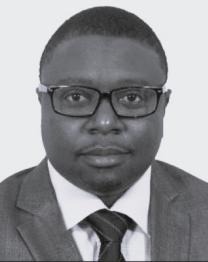
Calvin joined IATP as a senior trade policy analyst in December 2022 in the Washington, D.C. office. He has an interest in promoting environmentally sustainable agriculture approaches, strengthening rural livelihoods and in shaping U.S. agriculture policy, such as the Farm Bill. He has worked on trade policy issues and regional integration for the past 15 years. He has covered trade negotiations with the European Union, the Doha Round, the USTR and African Union on renewal of AGOA, and more recently as a consultant on the African Continental Free Trade Area. He began his career as a researcher with the Trade Policy Centre for Southern Africa (tralac) in South Africa. He has worked on trade policy issues based in Brussels and Geneva, as well as in developing country regions across Africa and the Caribbean. Before transitioning to non-profit, Calvin worked for the African Development Bank and the Caribbean Development Bank. As a trade policy consultant, Calvin has worked on various agriculture value chain and trade policy projects for various development partners that include the EU and GIZ. Calvin holds a master’s degree in International Law and Economics from the World Trade Institute, Switzerland and an LL.M. from Howard University. Calvin lives in Maryland with his partner and daughter. He enjoys the outdoors, politics and is a lifelong supporter of Liverpool FC.
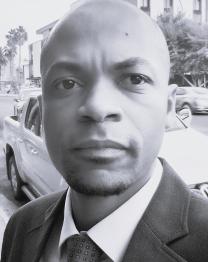
Julio Kunda Muya is Acting Head of Division in charge of commodities at the Department of Multilateral and Regional Trade Agreements, Ministry of Foreign Trade, Democratic Republic of the Congo. Julio has worked for several years at this Ministry and officially hold the position of Chef de Bureau. He holds a Master's degree in Global ICT Policy from PUSAN National University in South Korea, an advanced postgraduate diploma in Trade Policy and international trade law from the African Trade Policy Training Center in Arusha (Tanzania) and Lund University in Sweden, as well as a Licence (BAC+5) in applied computing from the Higher Institute of Computer Sciences, Programming and Analysis in Kinshasa. Julio represents his country to various international and regional organizations (such as the WTO, UNCTAD, UNCITRAL, SADC, etc.)
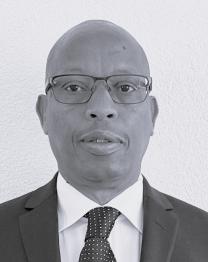
Janvier Désiré Nkurunziza is the Head of the Commodities Branch at UNCTAD. He directs research and field projects on the interaction between primary commodities production, trade and use, on the one hand, and economic development on the other. Prior to his current position, Janvier was the officer-in-Charge of the Commodities branch and Chief of Research and Analysis Section in the same Branch; Officer-in-charge of Africa Section, UNCTAD; Macroeconomic Policy Advisor at UNDP, New York; and an economist at UNCTAD and UNECA. Moreover, Janvier worked at Harvard University as a research officer; the University of Yaoundé; the University of Burundi; and briefly at the IMF and the World Bank. He also was a consultant on a World Bank/University of Yale project. Janvier trained as an economist at the University of Burundi, Addis Ababa University (Ethiopia), University of Oxford (doctorate) and Harvard University (Post-doc). He has coordinated the production of flagship reports at UNECA, UNDP, and UNCTAD, including the Commodities and Development Report. He has also published dozens of peer reviewed journal articles and chapters in edited books. Janvier is a Fellow of several academic and research institutions, including CSAE at Oxford University; Africa House at New York University; and PERI at the University of Massachusetts, Amherst. For the last thirteen years, he has been a resource person in the African Economic Research Consortium (AERC), based in Africa. His current research interests include the study of commodity dependence and its implications for development, economics of conflict, and development macroeconomics issues such as capital flight, inflation, and economic growth.
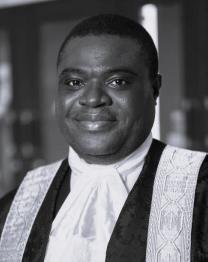
Professor Damilola S. Olawuyi, SAN is a Professor and UNESCO Chair on Environmental Law and Sustainable Development at Hamad Bin Khalifa University, Doha, Qatar. He is also Chairperson of the United Nations Working Group on Business and Human Rights. A prolific and highly regarded scholar, Professor Olawuyi has published several articles and books on energy, environment, and natural resources law, including Environmental Law in Arab States (Oxford University Press, 2022), which received the 2023 American Society of International Law (ASIL) Certificate of Merit. Professor Olawuyi holds a doctorate (DPhil) in energy and environmental law from the University of Oxford; a Master of Laws (LLM) from Harvard University; and another LLM from the University of Calgary. He has been admitted as Barrister and Solicitor in Alberta, Canada; Ontario, Canada; and Nigeria.He is a regular media commentator on all aspects of natural resources, energy and environmental law.
Kingsley Omeihe is a Senior Lecturer in Marketing at the School of Business and Creative Industries, where he serves as an Associate Lead for Research Impact. He is the Editor-in-Chief of the Journal of Trust Studies. Kingsley holds an affiliated position as Chair of African Studies at the British Academy of Management. He is the author of Sage's Qualitative Research Methods for Business Students.
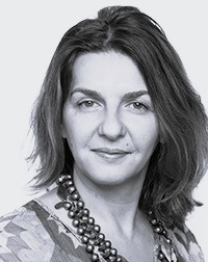
Ms Elizabeth Press is Director of Planning and Programme Support in the Executive Office of the International Renewable Energy Agency (IRENA). She leads the Agency’s programme and strategy development and related activities in IRENA governing bodies. Ms Press represents IRENA in climate-focused organisations and initiatives and leads several special projects, including geopolitics of energy transitions. She also oversees diversification of the Agency’s resource base and is IRENA’s focal point in Europe. Ms Press has served with IRENA since its inception in 2011. Before joining the Agency, she worked for some 18 years in development and peace and security, predominately with the United Nations. Ms Press served in Africa, Europe, Middle East, North America, and South-East Asia. She has an MA in Public Administration.
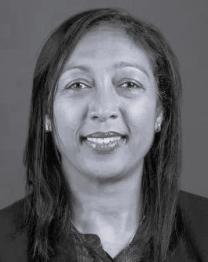
Isabelle Ramdoo is the Deputy Director of the IGF Secretariat and leads its work on local content policies, new technologies in mining and critical minerals. Isabelle is an economist with 25 of experience in international trade and industrial policy. She worked as a senior advisor to the African Minerals Development Centre/United Nations Economic Commission for Africa where she worked on linkages and local content policies. Prior to that, Isabelle was Deputy Head of Programme, Economic Transformation, at the European Centre for Development Policy Management (ECDPM). Isabelle also served the Government of Mauritius for 10 years, where she worked as an economist for the Ministry of Finance and Economic Development and as trade policy analyst for the Ministry of Foreign Affairs and International Trade, respectively.
Rudy Van Beurden has been Senior Vice President Public Affairs at FluxSwiss since 1 February 2020. Besides his current activities within the Fluxys group, he has been chairman of the Board of EASEE-gas from 2013 till 2019, a European association set up in 2002 in order to develop and promote business practices to simplify and streamline both physical gas transfer and trading across Europe. From 2015 till June 2020 he was also chairman of the board the Belgian gas association, gas.be.
Within Fluxys, and following the ownership unbundling into a fully independent gas infrastructure company, he became responsible for international business development of the company between 2008 and 2012. In 2012 he became the corporate Communication and Public Affairs Manager at Fluxys.
Rudy Van Beurden graduated as an aeronautical engineer from the Polytechnical Division of the Royal Military Academy in Brussels. After having served as a Belgian Air Force officer for about 10 years, Rudy Van Beurden started his career in the gas business in 1996 with the former integrated Belgian gas company Distrigas. In the past he has been responsible for a wide range of operational, commercial, strategy and M&A activities within the company. Within Distrigas he contributed to the creation and operational setup of the Zeebrugge trading hub and later became Managing Director of Huberator, an affiliate company, to manage the hub services.
Dr. Andrew Walker is a Vice President of The Global Gas Centre (GGC), a non-profit organization, based in Geneva, dedicated to executives and experts of natural gas companies who want to share views and best practices on sustainable energy with a particular focus on natural gas. He is also the Vice President for LNG Strategy and Communication for Cheniere Energy, the leading U.S. liquefied natural gas (LNG) exporter. He is located in London and is responsible for the LNG Strategy and Market Outlook of Cheniere, reporting into the Chief Commercial Officer. Until October 2015 he was Vice President for Global LNG - and prior to that Head of LNG Strategy - at BG Group where he worked for over 20 years before joining Cheniere. During his career in LNG, he has been located in Singapore, Egypt, the USA and UK and has worked on numerous LNG projects including Atlantic LNG in Trinidad and Tobago, Egyptian LNG, and Dragon LNG in the UK. Dr. Walker has a Doctorate in Geology from Imperial College, University of London.
Fatima-Zohra Yaagoub is the Impact Strategy Officer of the Common Fund for Commodities (CFC). Zohra has ten years of experience in driving impact through mobilising resources, strategy development and brokering shared-value partnerships in smallholder agriculture. Throughout her career at IFAD, GIZ and the OECD, sustainable finance has also been part and parcel of her activities. At the CFC, Zohra identifies opportunities to increase the Fund’s impact by strengthening its impact strategy, developing fruitful alliances, and carefully assessing sustainability risks within the portfolio. Together with the CFC, she aims to future-proof the organisation and put it in a strong position to scale up the impact of its investments in SMEs over the next Decade of Action.



